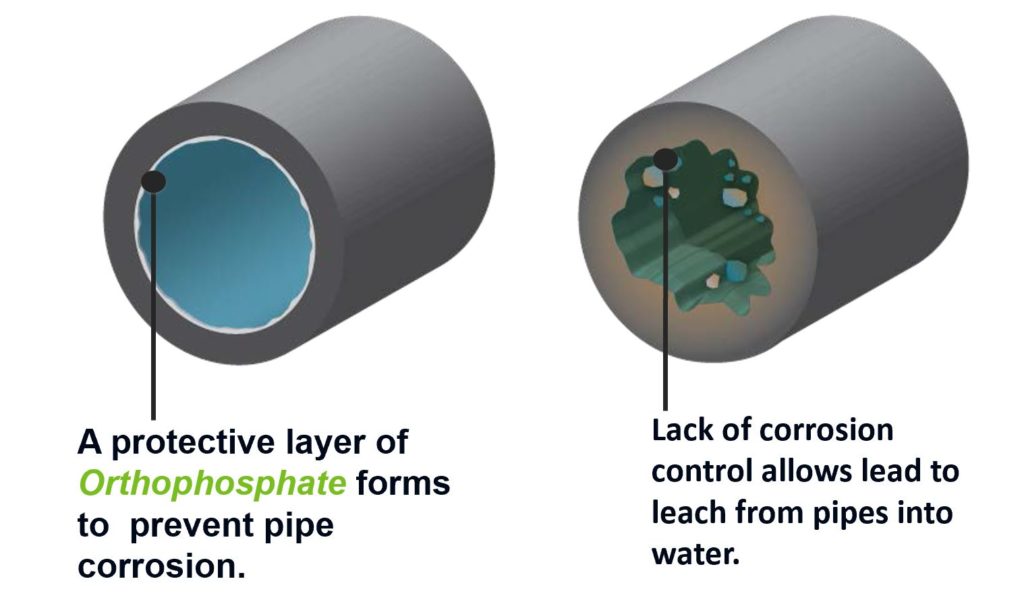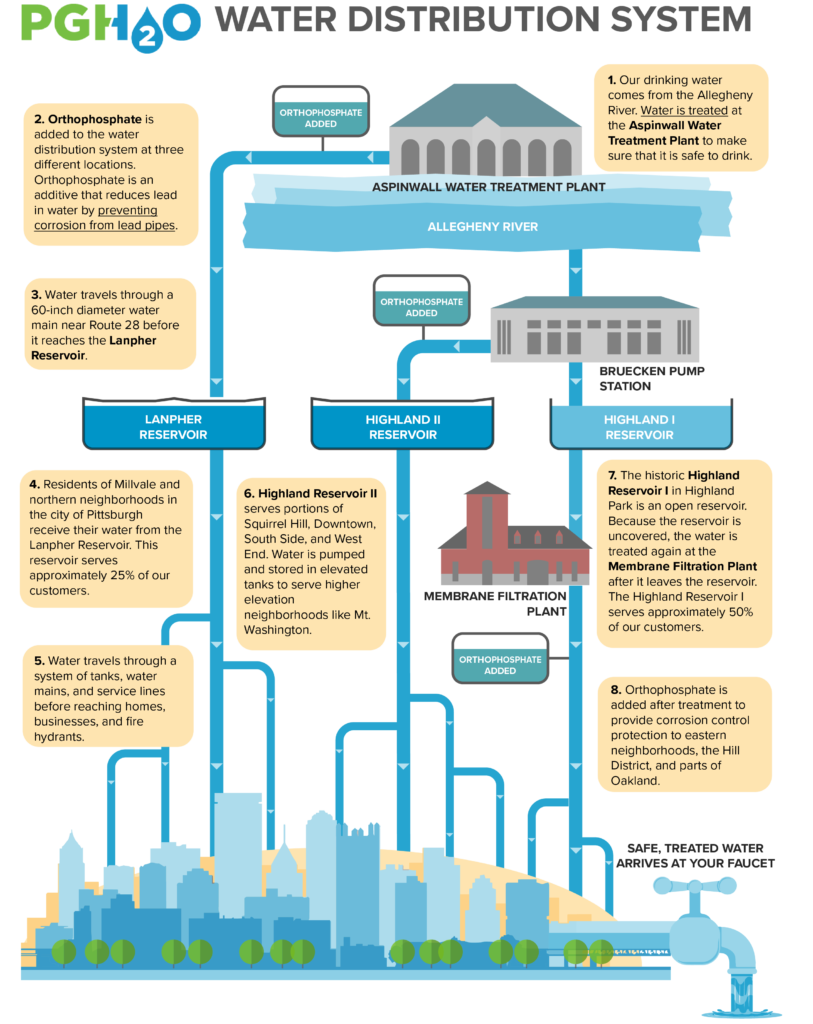All drinking water customers will receive water treated with orthophosphate
Pittsburgh, PA – On Monday April 29th, the Pittsburgh Water and Sewer Authority began adding orthophosphate to the final portion of the water distribution system. Areas of the city fed by the Highland I System, which includes eastern neighborhoods, the Hill District, and parts of Oakland will now receive water treated with orthophosphate.

“We’re extremely pleased that all of our customers will receive water treated with orthophosphate to minimize lead levels,” stated Robert Weimar, Executive Director of the Pittsburgh Water and Sewer Authority. “After months of planning, coordination with the City, and approval from the State, this is a significant accomplishment that demonstrates our ongoing commitment to delivering water that goes beyond all federal and state drinking water standards.”
The Highland I System provides water to approximately fifty percent of our drinking water customers. It is the largest service area and requires the greatest amount of treatment. To begin feeding orthophosphate into this portion of the system, two new facilities were constructed within Highland Park to house the equipment needed to apply this new treatment method.
The new facilities are located within the Sycamore Grove picnic area and near the open reservoir. They are designed to blend into Highland Park and the Sycamore Grove facility provides an additional community space within the park. The design and functionality of these structures were determined through an extensive community engagement process with the Pittsburgh Parks Conservancy, the Highland Park Community Council, and the Highland Park Community Development Corporation. We anticipate completing construction of the facilities later this spring.

The decision to use orthophosphate comes after a year-long study conducted by local and international water quality experts as well as comprehensive regulatory approvals from the Pennsylvania Department of Environmental Protection (DEP). We expect that orthophosphate will reduce corrosion from water service lines made of lead.
Orthophosphate is a food-grade additive that forms a protective layer inside of lead service lines, creating a barrier between the lead pipes and the water flowing through them. It is approved by the Environmental Protection Agency (EPA) and used in water systems across the world, including sections of the City of Pittsburgh served by Pennsylvania American Water Company.
Lead Line Replacement Remains Top Priority
The 2019 lead line replacement program is also now underway, and we are in the community working towards our goal of replacing over 4,500 lead service lines. Over 400 lines have been replaced already this year. Customers can learn more about lead in water and PWSA’s Community Lead Response programs at lead.pgh2o.com.
Ongoing Implementation of Orthophosphate
System Flushing
PWSA will continue to flush water from fire hydrants throughout its distribution system to prepare the insides of pipes for the new orthophosphate-treated water. In addition, flushing will help bring the orthophosphate-treated water to customers more quickly. Over the next few months, customers may see crews opening hydrants and performing water quality monitoring.
What you may notice
During the initial application period, orthophosphate may cause temporary water discoloration. To clear discolored water, please follow the instructions below
- Run cold taps at the lowest point in the building for about 10 minutes or until the water runs clear.
- If it is still not clear, wait about 30 minutes and try flushing with cold water again.
- If the issue persists, contact PWSA Customer Service at 412-255-2423 and a representative can assist in addressing the issue at your property.
Water Quality Testing
PWSA’s Water Quality team will perform ongoing water quality monitoring and analyze hundreds of water samples during the implementation of orthophosphate to ensure it is performed as smoothly as possible. Please visit our Community Lead Response website for more information and answers to frequently asked questions about orthophosphate.

